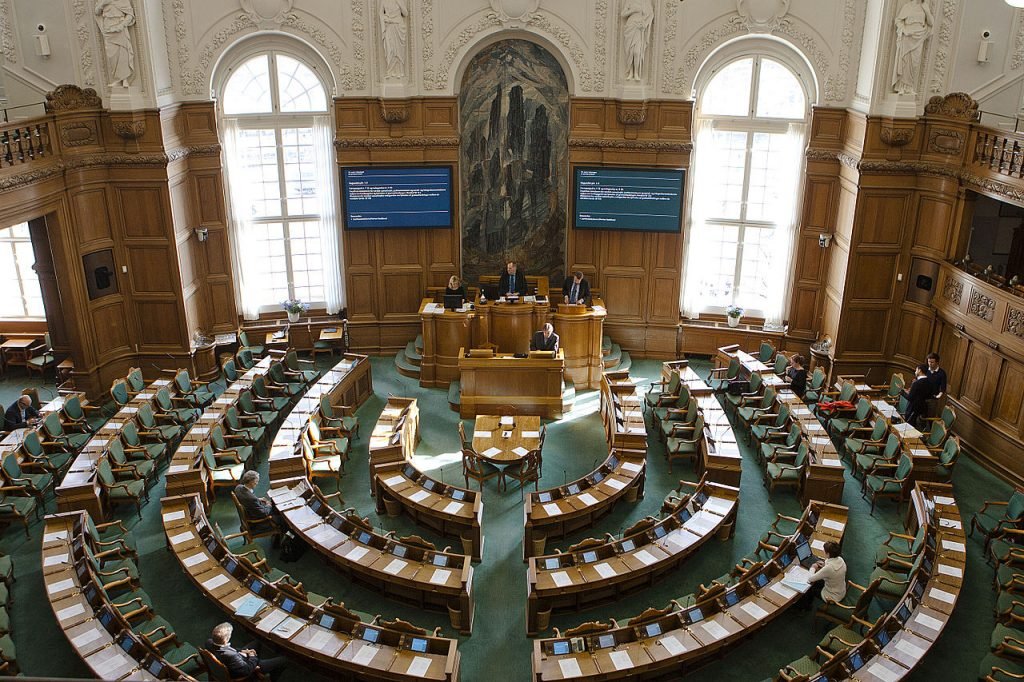Bill Challenges Turkey’s Restrictions on Armenian Genocide Speech
COPENHAGEN, Denmark (A.W.)—The Danish Parliament (Folketing) adopted a new resolution regarding the Armenian Genocide on Jan. 26, which recognizes the “tragic and bloody events that took place in eastern Anatolia in the period 1915-1923,” and states that the best way for reconciliation is through open dialogue on the basis of a “free and uncensored history research, including the release of all official documents from the period.”

While the bill criticizes Turkey and the fact that the term “genocide” cannot freely be used by its citizens and media, it does not specifically label the Armenian Genocide as such—except for in its title. The bill also states that the Parliament “maintains its parliamentary tradition not to issue judgments about historical events.”
After over two hours of discussion on the document brought to the Folketing agenda by Parliamentarians Nick Hækkerup, Søren Espersen, Michael Aastrup Jensen, Henrik Dahl, Martin Lidegaard, and Naser Khader, the Danish Parliament voted 89 to 9 with 11 abstentions to pass the measure.
“The Parliament confirms its decision no. V 54 of 19 May 2015 on the tragic and bloody events that took place in eastern Anatolia in the period 1915-1923. The Danish Parliament finds that the best path to reconciliation will be an open dialogue about the story on the basis of a free and uncensored history research, including the release of all official documents from the period. The Parliament regrets that Turkish law prohibits citizens and media to use the term ‘genocide’ about the events, and considers this to be an unreasonable restriction of both academic freedom as freedom of expression relates to the use of this term. Parliament maintains its parliamentary tradition not to issue judgments about historical events,” reads the adopted bill.
In 2015, the Danish Parliament adopted a measure, which recognized the “deportations, massacres and other atrocities” that had been committed against the Armenian population Anatolia in 1915-1923. In that bill, the Parliament expressed hope that there can be “reconciliation and normalization of relations between Armenia and Turkey,” and called on both governments to work towards that.
In 2008, then Danish Foreign Affairs Minister Per Stig Møller has said in a written parliamentary answer that in the Danish government’s opinion, the issue of the Armenian Genocide is a “historical question that should be left up to the historians,” indicating that Denmark would not recognize the genocide.


I am very surprised at the title of this article, because it misrepresents the facts. In truth and in fact the resolution indicates that “Denmark would not recognize the genocide”.
What a hypocritical document voted by Danish parliament, why leave the matter to historians when you can ask any Armenian about the events, because every family lost a loved one, how Turks uprooted cities and communities from their homes and drove them to the deserts to perish, my grandmother was one of the lucky ones who reached Lebanon with my father who was one year old.
Is this the Danish justice, Turkish atrocities had no limit they butchered, massacred and emptied the whole region from Armenians, the very few who stayed had to change their religion into Islam and adopt a muslim name, I am still holding the title deed of our lands, millions like myself hoping for justice.
All I can say is shame on you.
When you condone genocide by refusing to speak up you are as guilty as the people or governments that committed the authorities. You will have to stand in front of your own god and answer for your crimes.
If the Armenian Genocide is not called genocide, if no judgment is made about historical events how will future generations know what grievous evil looks like? How can intelligent discourse occur when a body politic “maintains its parliamentary tradition not to issue judgments about historical events.”
Judgement IS necessary!
It’s political cowardice which will be called what it is and will be judged, in that day, by the Judge of judges.